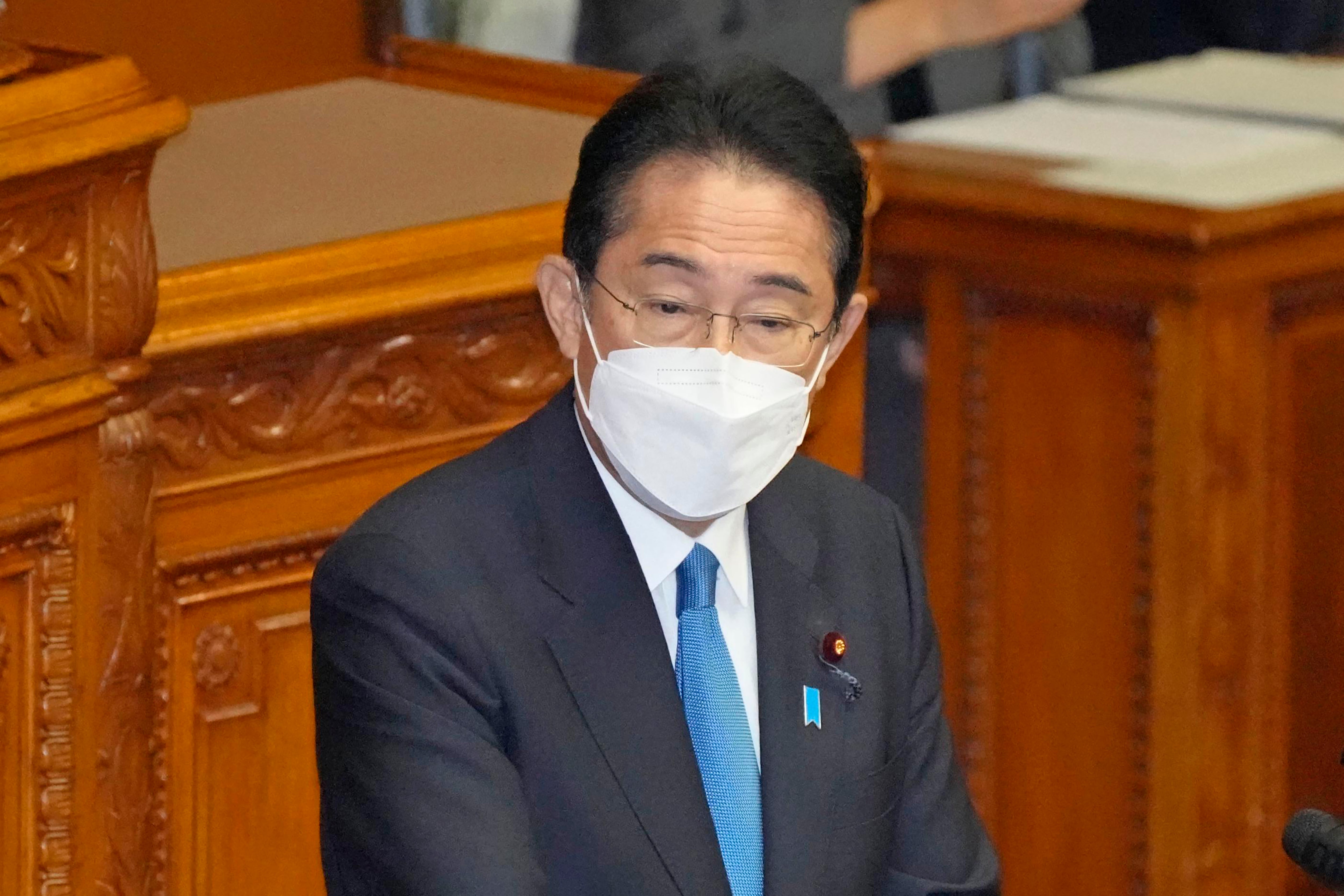Japan to OK $490B in stimulus to cushion impact of inflation
Japanese Prime Minister Fumio Kishida’s government is to approve a hefty economic package that will include government funding of about 29 trillion yen ($200 billion) to soften the burden of costs from rising utility rates and food prices

Your support helps us to tell the story
From reproductive rights to climate change to Big Tech, The Independent is on the ground when the story is developing. Whether it's investigating the financials of Elon Musk's pro-Trump PAC or producing our latest documentary, 'The A Word', which shines a light on the American women fighting for reproductive rights, we know how important it is to parse out the facts from the messaging.
At such a critical moment in US history, we need reporters on the ground. Your donation allows us to keep sending journalists to speak to both sides of the story.
The Independent is trusted by Americans across the entire political spectrum. And unlike many other quality news outlets, we choose not to lock Americans out of our reporting and analysis with paywalls. We believe quality journalism should be available to everyone, paid for by those who can afford it.
Your support makes all the difference.Japanese Prime Minister Fumio Kishida’s government was to approve on Friday a hefty economic package that will include government funding of about 29 trillion yen ($200 billion) to soften the burden of costs from rising utility rates and food prices.
Formal party and Cabinet approval was expected later in the day after a morning economic policy meeting. Kishida was set to give a news conference in the evening.
Inflation has been rising in Japan along with globally surging prices. A weakening of the yen against the dollar has amplified costs for imports.
The stimulus package includes subsidies for households that are largely seen as an attempt by Kishida to lift his plunging popularity. His government has been rocked by the ruling Liberal Democratic Party’s close ties to the South Korean-based Unification church, which surfaced after the assassination of former leader Shinzo Abe in July.
“We will make sure to deliver the measures to everyone and do our utmost so that people can feel supported in their daily lives," Kishida told the morning meeting.
The stimulus is another indication that Japan will stick to using fiscal measures, or government spending, to counter current economic challenges. While central banks around the world are raising interest rates aggressively to try to tame decades-high inflation, Japan's inflation rate is a relatively moderate 3% and the greater fear is that the economy will stall, not overheat.
The Bank of Japan, which has kept its benchmark rate at minus 0.1% since 2016, kept its longstanding lax monetary policy at a policy making meeting that wrapped up on Friday.
The overall size of the package, including private-sector funding and fiscal measures, is expected to amount to 71.6 trillion yen ($490 trillion), Kishida said. Fiscal spending will be 39 trillion yen ($270 billion).
The package includes about 45,000 yen ($300) subsidies for household electricity and gas bills and coupons worth 100,000 yen ($680) for women who are pregnant or rearing babies.
The 29 trillion yen ($200 billion) spending package will be part of a supplementary budget that still must be approved by the parliament.
Kishida vowed to compile and submit a budget plan and get it approved as soon as possible.
His support ratings have nosedived since July amid public criticisms over his Liberal Democratic Party's longstanding cozy ties with the Unification Church, which is accused of brainwashing adherents into making huge donations, causing financial hardships and breaking up families.
An LDP internal survey showed about half of its 400 lawmakers were tied to the church, though not as followers. Kishida's economy minister, Daishiro Yamagiwa, was obliged to resign earlier this week because of his ties with the church and failure to explain them. He was replaced by former health minister Shigeyuki Goto.
The hefty spending package will require issuing of more government bonds, further straining Japan’s worsening national debt that has piled up as the government spent heavily to counter the impact of the pandemic. Japan now has a long-term debt exceeding 1.2 quadrillion yen ($8.2 trillion), or more than 200% of the size of its economy.